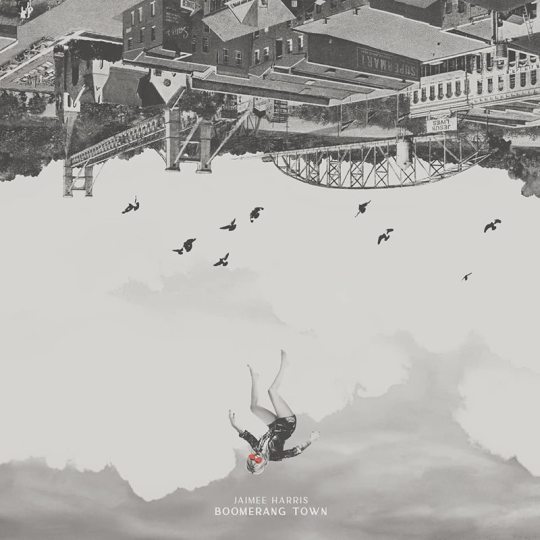#indie country
Explore tagged Tumblr posts
Text

#spotify playlist#spotify#spotify daylist#daylist#music#playlist#my playlist#small town soft country#thursday#morning#granola vibes#mountain#small town#soft country#indie country#stomping grounds#pumpkin spice
2 notes
·
View notes
Text
youtube
Just a sad little country song I wrote about growing apart from someone. Hope they find it.
#country music#indie country#indie folk song#indie songwriter#alternative country#singer songwriter#songwriter#acoustic guitar#lgbt#truth#Lonely#emo#blue grass#tennessee#appalachia#appalachain gothic#Appalachian Music#celtic#from the heart#breakup song#civil war#southern gothic#Youtube
6 notes
·
View notes
Text
I'll get high Tonight demo
youtube
Song I wrote.
( a long time ago)
Not about drugs lol it's about music.
#musician#songwriter#singer songwriter#folk#indie#country#alternative music#guitar#grunge#punk#rock#ballads#indie country#Youtube
4 notes
·
View notes
Text
youtube
#2023#music#spectrum pulse#album review#on the pulse#charles wesley godwin#family ties#americana#indie country#country#singer-songwriter#Youtube
2 notes
·
View notes
Text
"Nowhere left to go/ goings all we know" FUCK that is GOOD
GOOD SHIT
#no glory in the west#orville peck#country music#country#queer country#country rock#indie country#alt country
6 notes
·
View notes
Text

The Misguided Anger Of Oliver Anthony & The Working Class
Pioneering folk singer-songwriters The Almanacs, which included influential folk musician Pete Seeger, penned the protest song “Talkin’ Union” in 1941. The song is about forming a labor union, including the positives and the roadblocks that would get in the way, but it mainly is about how necessary they are. That song was written in the 1940s, but the need for unions has extended to the present day. Protest music itself is an idea that’s just as American as baseball, apple pie, and McDonald’s. A lot of these songs, as well as the ideas that these songs express, are timeless. Labor unions, for example, are just as important now as they were almost a century ago. An artist being able to express their thoughts through song is a right that’s guaranteed by the First Amendment, but that free speech works both ways. Just as an artist can release a song that has one point, they can release songs that has the opposite.
This year has seen the rise of two songs, almost back to back, that the (mainly) right side of the political spectrum are championing, more specifically Jason Aldean’s “Try That In A Small Town” and Oliver Anthony’s “Rich Men North Of Richmond.” The former song has already faded from most people’s minds, as most folks who defended the song forgot about it a couple of weeks later, and moved onto Oliver Anthony’s “Rich Men North Of Richmond.” There is something to be said for an independent artist that was a nobody a week ago suddenly blow up and have millions of plays on streaming services out of nowhere, but that’s a good topic for another piece. This piece, however, is about the complicated subject matter of the song.
At first glance, “Rich Men” is a song that aims to unite the working class against politicians and corporations that don’t pay them fairly. Lines like “I’ve been selling my soul, workin’ all day / Overtime hours for bullshit pay / So I can sit out here and waste my life away / Drag back home and drown my troubles away” make a lot of people think that. The chorus, while still having that idea, is a little less interesting, because all Anthony says is that rich men north of Richmond are bad and they want to control you. So far you’d think the song is ultimately about the blue collar worker struggling to get by, but the song takes a dramatic turn in the second and third verses that made me understand why conservatives specifically love this song.
Thanks to many Republican politicians using rhetoric that purposely divides people, there always needs to be a hypothetical “they” to blame for their problems. Well, who does Oliver Anthony blame for his? You’d think that he would blame the corporations, the politicians, or the capitalist system that they all benefit from, but instead he blames “the obese milkin’ welfare.” With lines like “Well, if you’re 5’3” and you’re 300 pounds / Taxes ought not to pay for your bags of fudge rounds,” the issues with the song start to present themselves. Anthony’s idea of blaming obese people on welfare for his woes is very odd, but it’s also very misguided. What Anthony and people that love the song don’t seem to realize that you don’t need to punch down on others to make a point. Bruce Springsteen, John Mellancamp, Tom Petty, Woody Guthrie, and Pete Seeger didn’t punch down on people to make their points about wanting to be paid equally, or their everyday struggles as blue collar Americans.
Seeing these types of songs, especially “Rich Men North Of Richmond,” getting popular, makes me wonder where other songs and artists like this are. A few of the popular heartland-rock artists of the 1970s / 1980s are still making music and regularly touring, but there aren’t modern artists in this vein that are a household name. I’ve been thinking about all of this for the last week, especially with the song debuting at number one on the Billboard 100. Personally, I have mixed feelings on the song itself, because as much as it attempts to make a great point in the first half, it’s the rest of it that leaves a very sour taste in my mouth. The song itself, looking past the controversy, is mediocre, and it sounds as amateurish as you can get. It’s still cool seeing the power that people can have on the music industry and seeing a completely independent artist rise to the top, especially about the average blue collar worker’s experience, but why him, though?
Springsteen, Petty, and Mellancamp were so popular in their time for being vivid and grounded storytellers, whether talking about themselves or characters in their music that accurately represented the average American. While Anthony’s “Rich Men” sort of does that, it just feels like he’s angry about how the way things are, and doesn’t know how to properly articulate it. This song relies more heavily on emotion, versus what he actually has to say, and maybe that’s why people are resonating with it, but there are other artists out there (especially in Appalachia) that speak more to the average American’s experience and do so in a way that doesn’t blame anyone or paint anyone else as an enemy.
A great example of an artist that should be held in the same regard as Oliver Anthony is Adeem The Artist, a country / folk singer-songwriter from North Carolina that speaks openly about their expediences as a queer and non-binary person in the South. Their last LP, 2022’s White Trash Revelry, is a record that has a lot of themes and ideas that speaks to the average (Appalachian) American’s experience, such as racism and white supremacy, the opioid epidemic, toxic masculinity, and poverty. When I listened to “Rich Men North Of Richmond,” I immediately thought about the song “Books & Records” by Adeem The Artist. That song is a much more compelling look the blue collar worker’s struggle, because it’s a very grounded song that has Adeem (or an unnamed character) having to sell their books and records just to be able to eat.
That’s a sad reality for many everyday people; they don’t want to sell their prized possessions, but surviving is much more important, so they do what they need to do. There is a warm sense of optimism at the end, however, saying that they’ll buy them back someday, which is something that “Rich Men” unfortunately lacks. Instead of providing an answer to Anthony’s grievances about being paid unfairly, and what he can do to remedy that, he points a finger at groups of people that he feels that are to blame. He ultimately shrugs and says that’s the way it is without really offering any solution, or pondering why he’s in that position. Books & Records” doesn’t punch anyone down, or blame anyone, it’s just an honest look at being poor and having to sell your books and records so you can eat.
I don’t think that “Rich Men North Of Richmond” is going to stick around in the weeks to come. A lot of the people that love the song are going to move on, just as they did with “Try That In A Small Town.” If they truly resonate with the message of being paid unfairly, and being angry with politicians, they’d protest, form labor unions, or much more simply, vote for politicians that are not going to let these corporations commit unethical and unfair business practices. The sad reality is that the same people that love this song are still going to vote for the politicians that the reasons for why they’re facing these hardships. They don’t realize that those politicians don’t care about them, and only care about their self-interests. The most powerful weapon that we have in this country is our vote, and the only way to at least attempt to upend the capitalist system that benefits the corporation and disenfranchises the average worker is to vote for the politicians that will repeal or enact laws to limit the power of these corporations.
Until that happens, more songs like “Rich Men North Of Richmond” are sure to get popular for a week or two, only for people to forget about them (and what they say), just to move onto the next guy that says the same thing in a slightly different way. The cycle is going to repeat over and over again, and that’s the way a lot of politicians want it to be. They don’t want anything to change, and they have both trained people to live with the way things are, and divided people in a way that blames their fellow Americans, instead of everyone uniting together to take them down. There are many hypothetical “theys” that politicians want to paint as the enemy for people to point their fingers at, and “Rich Men North Of Richmond” buys into that propaganda, but the real enemies are the politicians themselves and that’s who we really need to go after.
I wrote this piece last week, right as the song was starting to get traction, and I wanted to add onto it at the very end, because Anthony has come out in the days since to talk about his thoughts as the song has gotten bigger. He has come out and said he thinks it’s funny that Republicans have co-opted the song, and that it was played at the GOP debate, only because he wrote that song about people like that. He also said that he celebrates diversity, and people need to unite together instead of be torn apart. Those sentiments are fine and dandy, but those welfare lyrics still don’t sit well, nor give me the impression he loves diversity, and the fact that he hasn’t quite denounced his Republican fanbase is telling. You can say you’re an “independent” all you want, but most people that say that, they lean towards the right. It’ll be interesting to see where the song lands on the Billboard 100 this week, considering the hype has pretty much disappeared, as to be expected, but we’ll see.
#oliver anthony#rich men north of richmond#acoustic#folk music#country#appalachia#indie country#bruce springsteen#tom petty#john mellencamp#pete seeger#woody guthrie#adeem the artist#white trash revelry
6 notes
·
View notes
Text

A selection of BEST CURRENT AMERICANA • Roots Rock • Alternative Country • Folkrock • Southern Rock • Canadian Americana 💥 COVER: MADAM RADAR • Photo by Lisa Hamilton
#americana#folk rock#roots#country#alt country#roots rock#singer songwriter#new americana#newcountry#playlistspotify#spotify playlist#spotifyplay#indie music#indie folk#indie country#indie rock#new music#newreleases#southern rock#Spotify
2 notes
·
View notes
Text
Top 10 ✨ Week ending in 04/01

Hey everyone! It's officially April which means Spring is here! What is your favorite spring activity? I always love taking my dog for a walk 😊
For another week in a row we have the lovely Lauren Daigle with "Thank God I Do" in our number one spot! In spot number two, we have Lanie Gardner with "Roses and Wildfire" and "Country Can" by Hannah Ellis takes our third spot.
We also welcome Emme Lentino to the countdown with her recent release "Time Machine."
Be sure to keep sending your votes to [email protected]. See you next week 👋
Check out this week's playlist here: https://open.spotify.com/playlist/4K187ywe7yMUnifQvUr4Hj?si=9428cc4f02594913
#heartofindieradio#indieradio#indiemusic#indiepop#indierock#indieartist#indie country#Spotify#listentothis#newmusic
2 notes
·
View notes
Text
Jaime Harris Boomerang Town
Jaime Harris Boomerang Town Folk N’ Roll/Thirty Tigers On just her second album Jaimee Harris has proven to be an impressive singer-songwriter, creating vivid character sketches, a myriad of emotions, and an honest way of expressing her own personal feelings through her narratives. She echoes Springsteen and Gretchen Peters to name just two. Those alone should be sufficient and lofty reference…

View On WordPress
2 notes
·
View notes
Text

ALL BLUE
Julianna Riolino
2022
Standout track: “Queen of Spades”
2 notes
·
View notes
Text
bro i LOVE indigenous fusion music i love it when indigenous people take traditional practices and language and apply them in new cool ways i love the slow decay and decolonisation of the modern music industry
#but also !!!!!!! indigenous people who make traditional music and release it !!!!! just as cool !!! equally as valid !!!!!!!!!!! indigenous#people who just release in english/the main language of their country are also very cool !!!!!! more love and focus on the art of#indigenous ppl !!!!!!!!#anyway i have been on a big Inuit pop/indie fusion kick lately#i've also been meaning to do a deep dive into the Blak (indigenous australian) music scene#anyway ! :3#music#words of wyrm
42K notes
·
View notes
Text

#oceancore#paradise#nature#adventure#explore#travel#travelling#inspiration#summer#aesthetic#photography#indie#fairycore#pink aesthetic#tropical#ocean#beach#landscape#cottagecore#naturecore#country cottage#curators on tumblr#photographers on tumblr#beauty#pretty#pink#cute#beachlife#beachvibes
25K notes
·
View notes
Text

#spotify playlist#spotify#spotify daylist#daylist#music#playlist#my playlist#small town van life#friday#afternoon#cocktail hour#soft pop#small town#van life#soft country#indie country#country folk#campfire
1 note
·
View note
Link
3 notes
·
View notes
Text



#landsccape#paradise#nature#adventure#explore#travel#travelling#aesthetic#photography#art#cottagecore#naturecore#landscape#indie#vintage#pale#grunge#ocean#beach#mountains#curators on tumblr#photographers on tumblr#flowercore#farmcore#cottage witch#lake#cottage garden#flowers#cottage country#lovecore
11K notes
·
View notes
Text
Then outta the blue everything about you started changin’ like the colors on a mood ring
Nothin’ lasts forever but you’re quicker than the weather, I shoulda known better but you fooled me
Good thing goin’ to a good thing gone
Just when you think you know someone
#played this so many times in the past 36hr since first hearing it#july moon#music#cassidy daniels#piper bateman#braelyn watt#country music#indie country#mac.txt#and yes. the person you think of despite their cruelty.#Spotify
0 notes